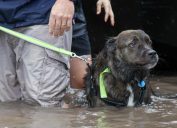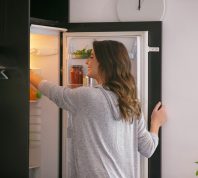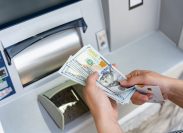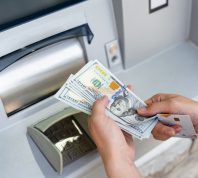How to Keep Your Pet Calm During Fireworks, According to Experts
Fireworks may scare your pets, but you calming them down is easy with these vet-backed tips.
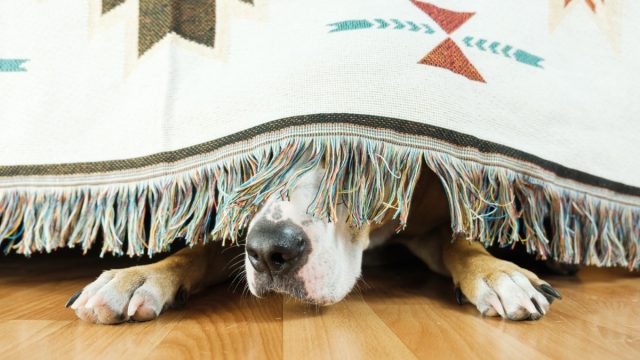
For many people, July 4th means a day off from work, a barbecue in the backyard, and some much-needed rest and relaxation. Unfortunately, for your furry friends, it often means a night spent cowering in fear as loud fireworks displays are set off. According to a 2010 study published in the New Zealand Veterinary Journal, 46 percent of pet owners polled said that their cats or dogs experienced fireworks-related fears, triggering everything from hiding to going to the bathroom outside of designated areas to engaging in destructive behavior. Fortunately, even if they've terrified your pet in the past, there are plenty of easy ways to keep them calm during the fireworks this Independence Day—just read on to discover what veterinarians recommend. And for more ways to keep your furry friends safe, check out these 7 Coronavirus Pet Facts That Every Owner Needs to Know.
1
Cover your windows.
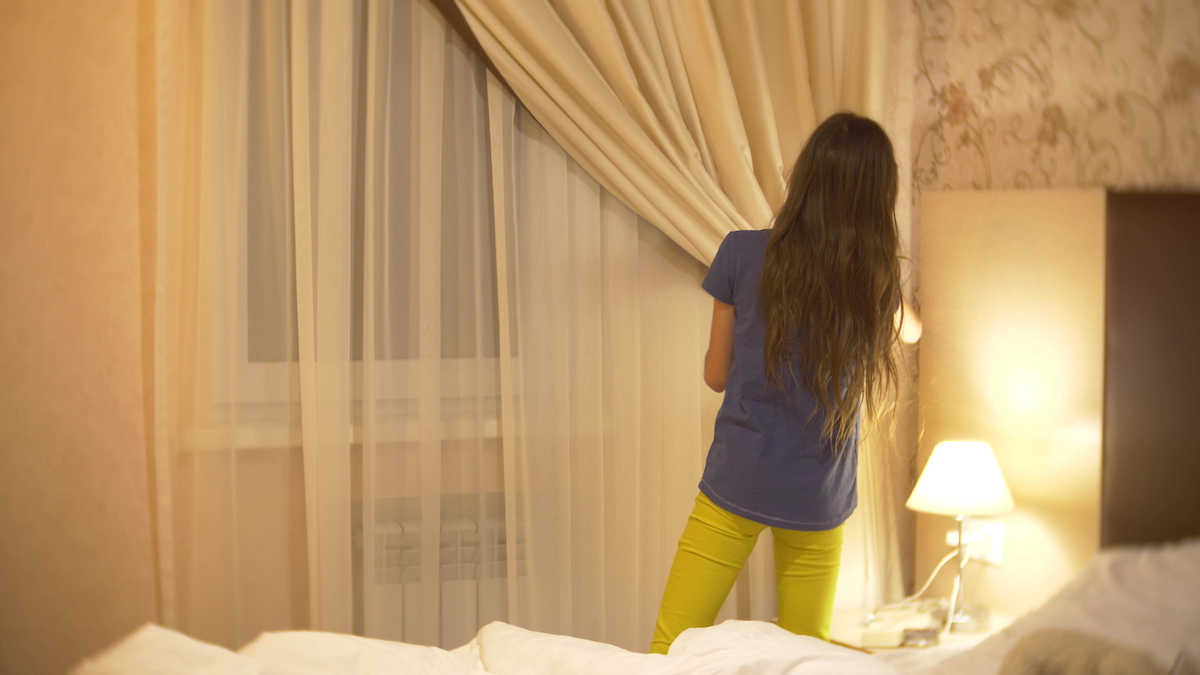
Both the auditory and visual aspects of fireworks can provoke anxiety in animals, so it's wise to block them out by any means possible.
"In advance of the fireworks, prepare your home by closing all the windows and the curtains to help muffle the sounds," suggests Antje Joslin, DVM, a veterinarian for Dogtopia.
2
Add soothing sounds to drown out the noise.
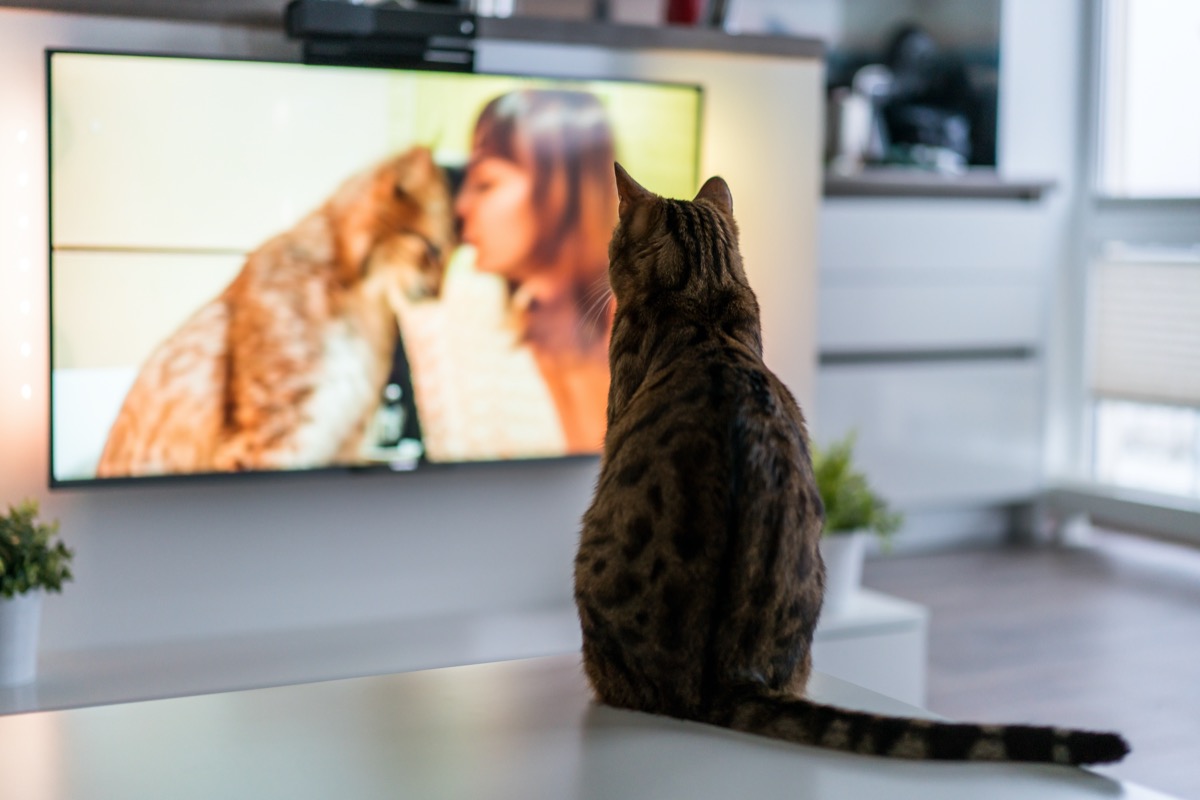
A few familiar noises around the house may help reduce your pet's fear response to fireworks. "Turn on some music or the TV, but be sure it has gentle sounds to help calm their anxiety," says Joslin.
3
Keep your pet indoors.
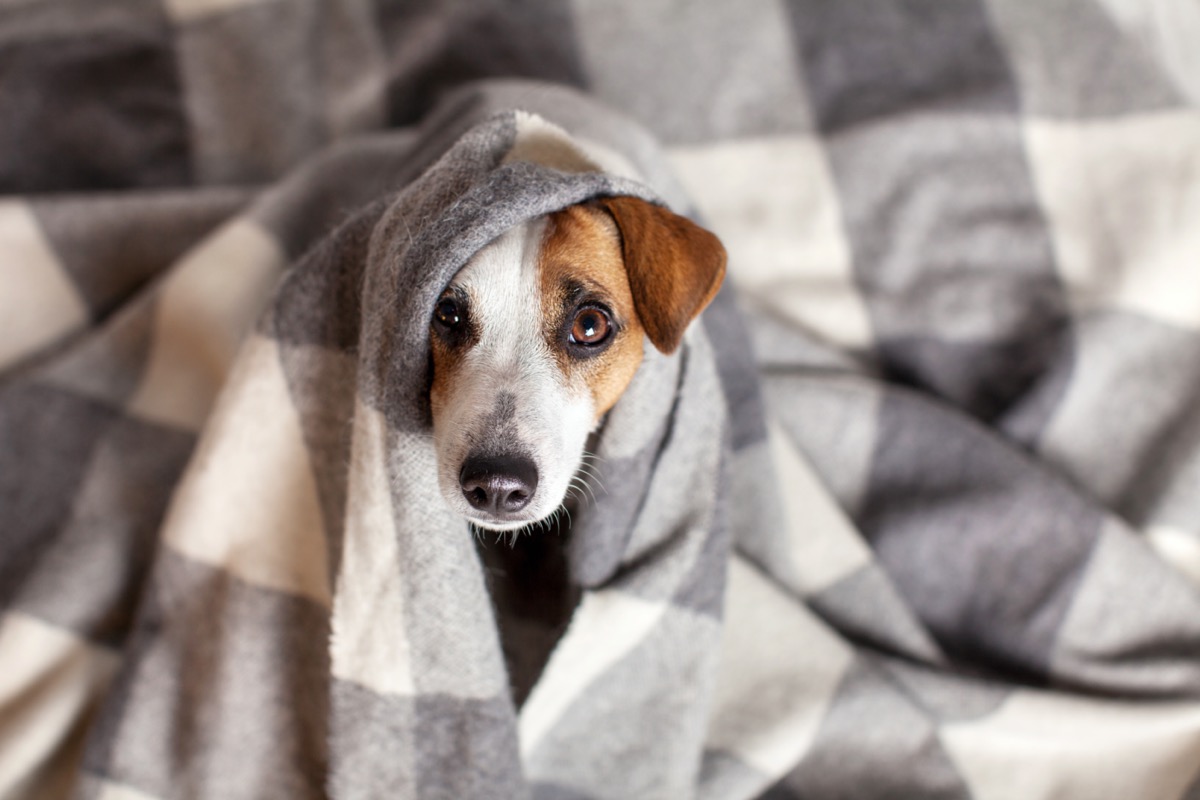
You may want a front row seat to your local fireworks display, but your pup definitely doesn't. Sara Ochoa, DVM, a veterinary consultant for Doglab.com, says it's important to keep skittish pets indoors during fireworks, and recommends keeping them within a confined space inside your home.
"Keeping them in your house, closed off in a room or in a kennel, will help them from escaping when you are coming and going," says Ochoa, who recommends covering the kennel with a blanket, as well. And for more up-to-date information, sign up for our daily newsletter.
4
Create a comfortable space for them.
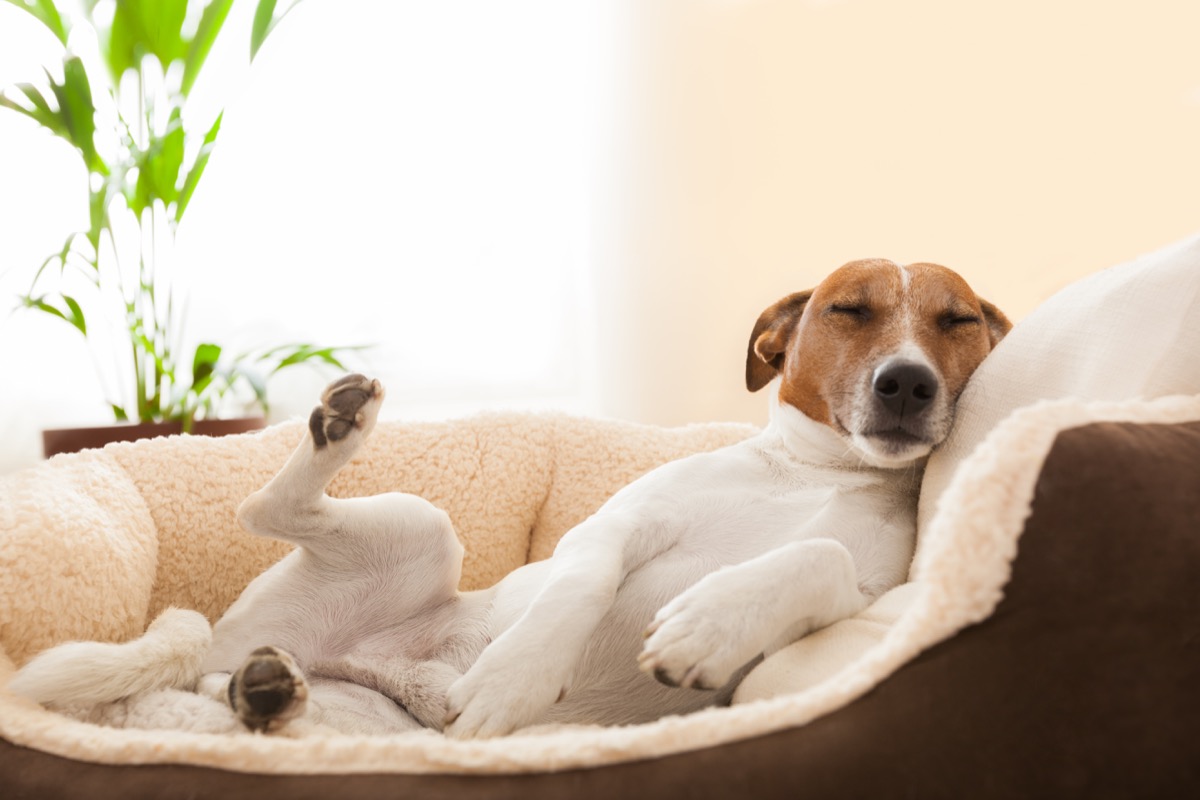
If your pet doesn't typically use a kennel, you should still carve out a comfortable space they can hide away in.
"Create this space for them ahead of time with their dog bed and toys, along with easy access to their food and water," suggests Joslin. And if you want insight into your pup's behavior, discover these 19 Things Your Dog Is Trying to Tell You.
5
Give them extra play time during the day.
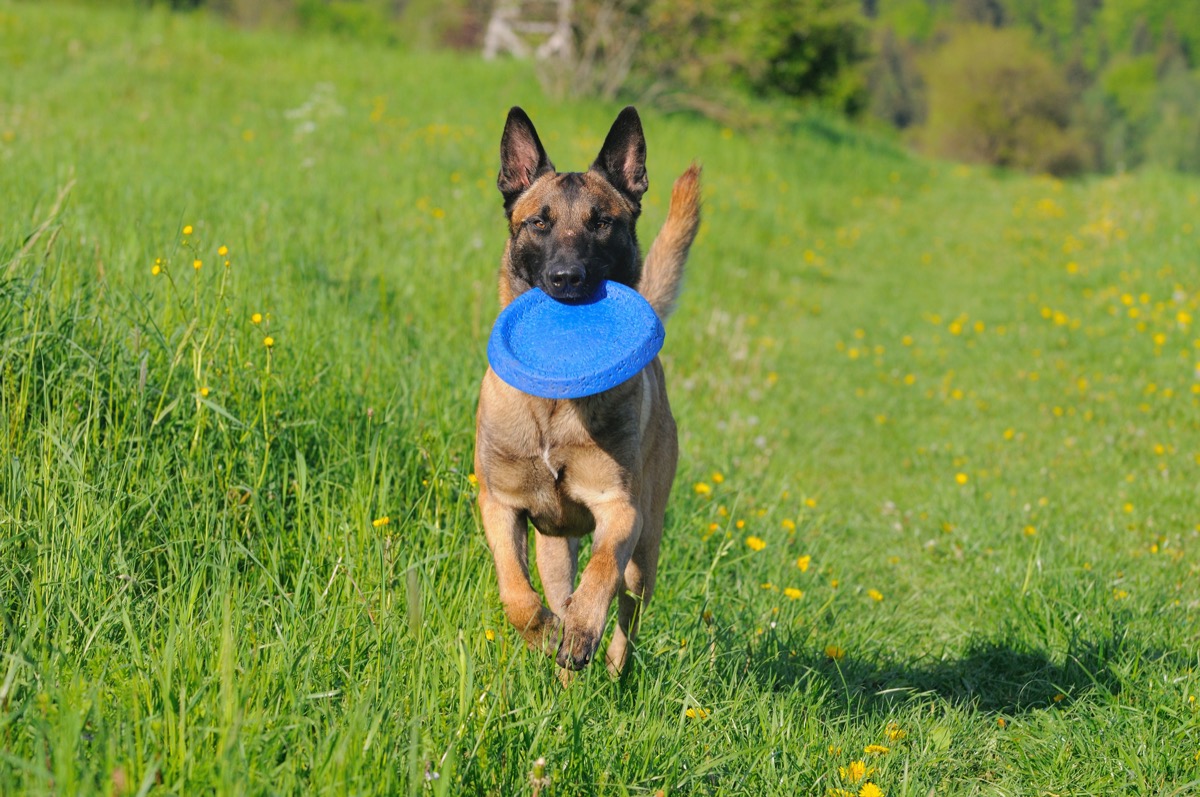
One of the easiest ways to ensure your pet doesn't freak out when the fireworks start? Get them so tired they don't even notice.
"Throughout the day and before the fireworks show begins, take your dog on a long walk. Run with them, play games, and exhaust all their energy so they are tired from the fun," suggests Joslin, who notes that even if they don't fall asleep, feeling physically worn out will help keep them calm.
6
Try aromatherapy.
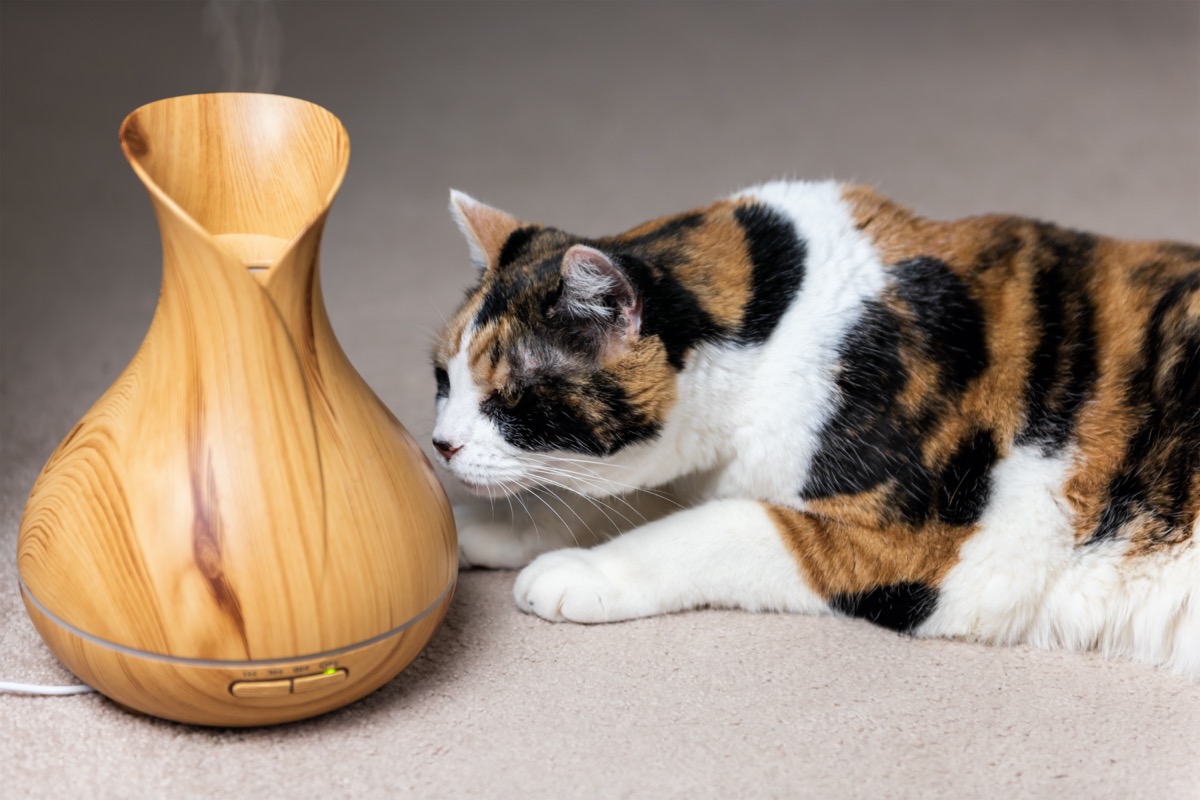
Calming scents don't work exclusively on humans—your pet may benefit from some aromatherapy, too.
"Lavender, chamomile and other calming essential oils don't only help humans settle their nerves but canines as well," says certified cat/dog behaviorist Russell Hartstein. However, Hartstein notes that some essential oils can be toxic to pets—and different oils can be toxic to dogs and cats—so it's important to run this step by your vet first.
7
Talk to your vet about medication.
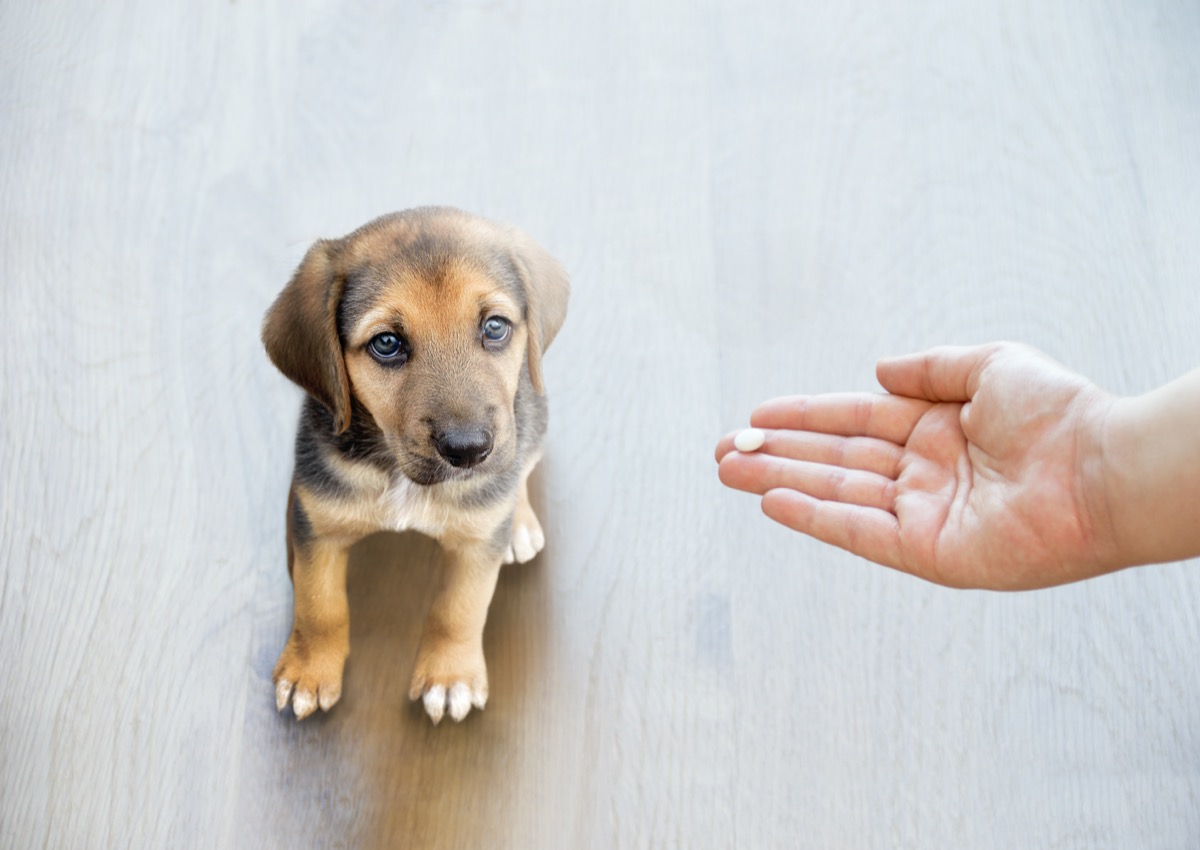
If it feels like you've exhausted your other options, don't be shy about asking your vet for help.
"It's ok to say yes to drugs or holistic supplements," including pheromones, prescription antidepressants, or anti-anxiety medications, says Justine Lee, DVM, a veterinary spokesperson for Pumpkin Pet Insurance.
While it may feel strange to give your pet medication, Lee assures, "Vet-recommended medications are very safe and can play an instrumental role in keeping [them] calm during anxiety-inducing situations." And if you want to keep your pup happy in the long run, start by nixing these 17 Things You Do That Your Dog Actually Hates.




